Trading bushmeat: Kangaroos and Australia
Life on land



Your support will assist us to continue our research and content development, the greater our resources, the more we can do.
The more we have an accurate understanding of what is happening to nature, the more we can all do to protect what remains of our living planet.
This is also an opportunity for philanthropists to be part of an ongoing project that tells independent stories about the natural world, stories that will help us to better understand what is happening to species and places on our precious planet Earth.
Note: Creative Cowboy Films does NOT have tax deductible charity status.

The Nature Knowledge Channel is a very real way you can help the precious natural world and support the work we do in creating knowledge about the natural world.
Annual membership of the Creative cowboy films - Nature Knowledge Channel gives you full access to content, stories and films, available on this website. Becoming a member of the Creative cowboy films - Nature Knowledge Channel is a very real way you can help the natural world and support our work in creating a greater understanding about what is happening to it.
A point of difference
Creative cowboy films is independent, is not funded by governments or industry, and is not influenced by their associated interest groups. For reasons of independent research and content development, Creative cowboy films does NOT have tax deductible charity status.
Life on land
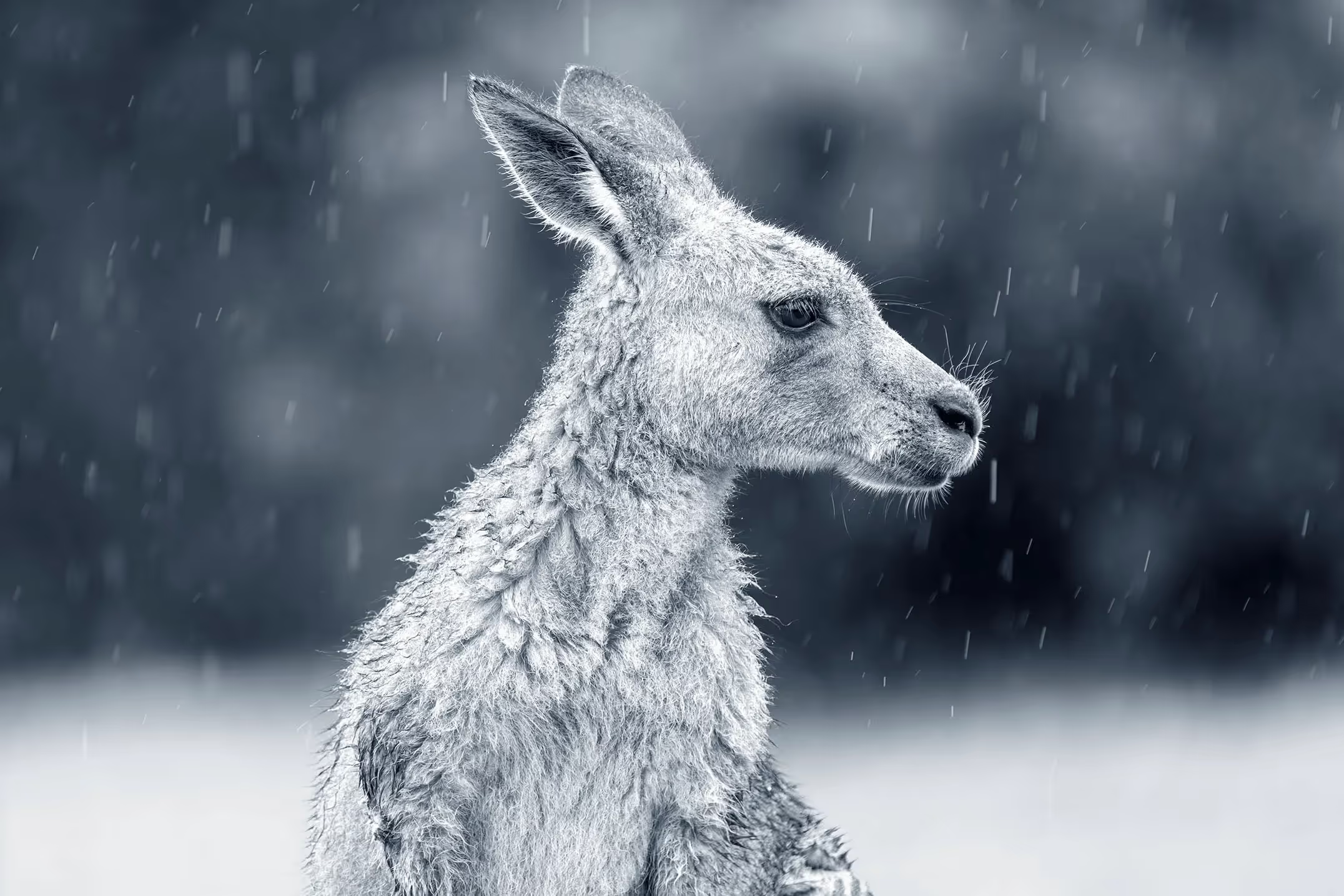
We would like to thank: Senator Mehreen Faruqi (Greens) for her work in the Federal Parliament, Kangaroos at Risk and all the many others seeking to shine a light on what is the most cruel and unsustainable of bushmeat trades.
The problem we see for the Australian Government is that when their officials make their representations and lobby foreign governments for market access, the majority of the individuals they speak to know precisely what goes on in relation to Kangaroos and they also know that what they are being told is unlikely to be true.
The two things they know best of all is the trade is not humane, neither is it sustainable as claimed.
So here we have a situation where Kangaroo exports, a minuscule trade, shape perceptions about Australia more broadly. We think this is very sad and also very silly.
In the latter part of 2023 Taiwan was added to the list of countries importing Kangaroo meat, no doubt as a result of the Australian Government’s lobbying efforts. The great disaster is if this becomes a gateway to China. That would be the end of Kangaroos in Australia.
Again in the latter part of 2023, amid claims of increasing Kangaroo populations in New South Wales, the Walgett Kangaroo Processing Plant and other processors announce closures and carcass limits to chiller premises. Reasons given for this are similar to those discussed on the Nature Knowledge Channel in previous analysis of these markets and include the drop in beef and lamb prices, limited freezer space for the low value Kangaroo product, increasing distances travelled for less product and the increase in full prices making costs of the commercial killing far too high given the current value of Kangaroo carcasses and the increasing concerns of consumers and governments internationally relating to cruelty and ‘sustainability' of the killing.
As a result of a range of adverse market conditions Kangaroo meat dropped to $1 per kilo, down from $1.60, adding to the woes of commercial shooters. Roughly that translates to a current average price for Kangaroo carcasses of $25 and a great deal less for smaller females.
Among the washing, this time green, it appears that the idea that the commercial trade in Kangaroos is somehow beneficial in relation to reducing agriculture's carbon footprint is yet again being spruiked by governments in Australia. Just to repeat yet again, the commercial exploitation of Kangaroos is a very carbon intensive activity, power and diesel enabled, particularly when measured by carbon intensity by dollar value, requiring long journeys in fuel guzzling vehicles and storage in often remote chiller boxes.

Here we detail the overseas jurisdictions (including countries and states that legislate their own import rules) the Australian Federal Government has lobbied since 2018 or plans to lobby, for the purpose of seeking to have that jurisdiction accept the importation of Kangaroo products, or to maintain or build export markets in relation to Kangaroo products. These are as follows:
The Australian Government has made representations to governments and/or government officials, and industry groups, in the following jurisdictions in relation to Kangaroo market access:
The Australian Government has made representations to overseas jurisdictions related to proposals which will negatively impact trade in Kangaroo products.
Government representatives have engaged with individuals and groups in the jurisdictions listed above via emails, letters, and meetings (in-person, virtual and calls) between 2018 and 2023.
This engagement has been to varying degrees in each jurisdiction, and has been had with legislators and their offices, industry groups, and government officials. The Government has helped facilitate visits (organising meetings) to Europe and the United States by the Kangaroo Industry Association of Australia (KIAA) – now called the Australian Wild Game Industry Council (AWGIC).
Government advocacy on this issue is a normal business activity and no specific funding has been allocated for this issue (see grant funding below).
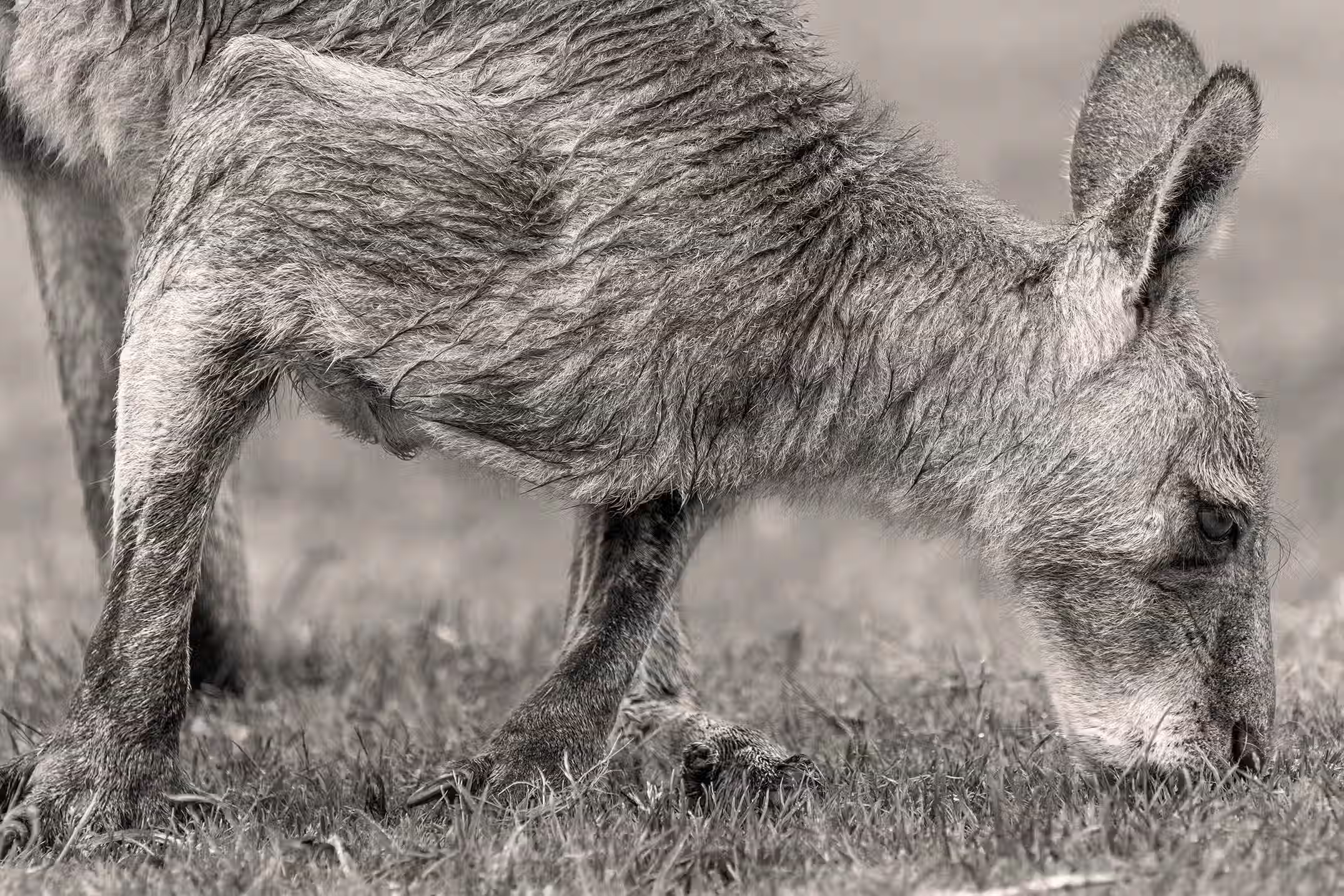
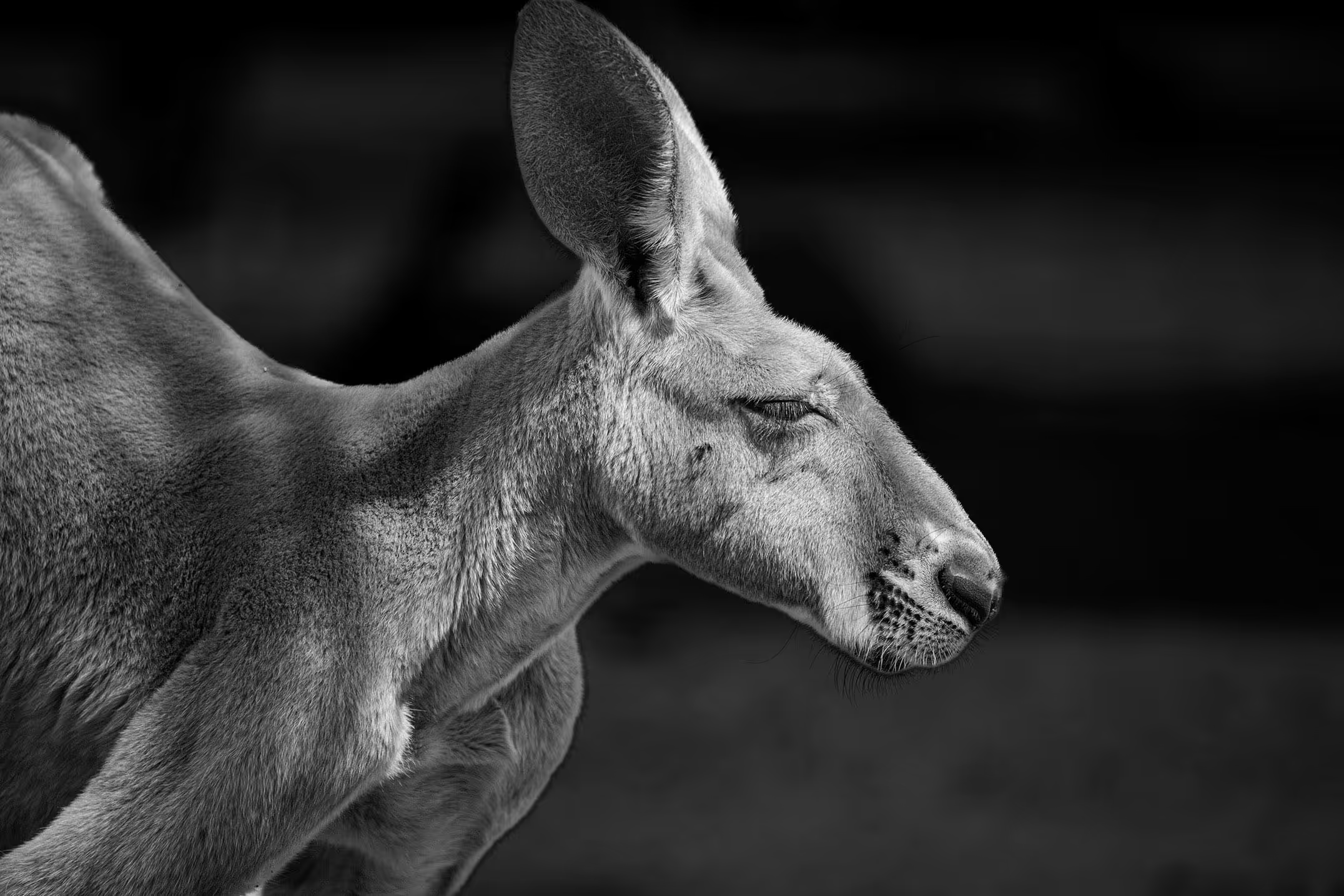
“Bills seeking to ban the sale of Kangaroo products have been introduced or proposed in the US Congress, several US state legislatures, and in Europe. The Australian Government is working to counter mistruths and ensure consumers can continue to buy Australia’s high-quality responsibly sourced Kangaroo products”. Australian Government, Department of Agriculture, Fisheries and Forestry
In 1971, the US state of California banned the sale of Kangaroo products based on concerns about declining populations in Australia. While moratoriums on the ban were enacted in 2007 and 2010, the ban has been in effect since 2015 and prevented Australian businesses selling Kangaroo products into the state.
“Decapitated, disembowelled and left to rot. Kangaroo carnage at a Victorian holiday hotspot has horrified residents, visitors and tourism operators. WARNING: GRAPHIC IMAGES. Tourism operators and residents in the holiday town of Dunkeld were horrified when dozens of Kangaroos were shot in the dead of night, then decapitated, disembowelled and left to rot in fields close to homes. The animals’ heads, tails, paws and entrails were left behind, alarming visitors and residents of the popular tourist hotspot at the southern edge of the Grampians National Park. The mobs are one of the attractions of the area, with many cottages and retreats highlighting the opportunity to meet the roos”. Sunday Herald Sun, 14 December 2019
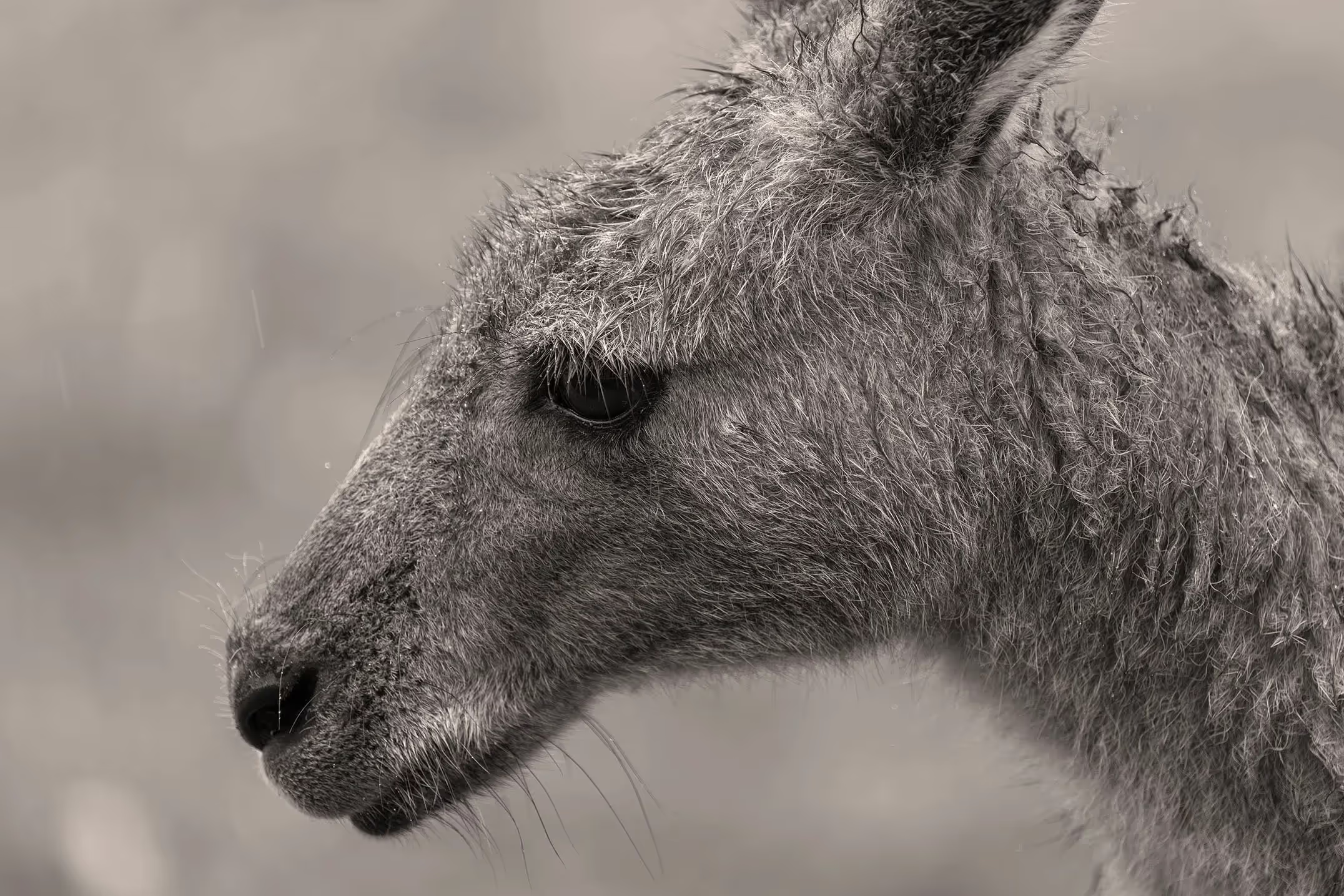
The Australian Federal Government claims the following:
"The National Code of Practice for the Humane Shooting of Kangaroos and Wallabies for Commercial Purposes (the National Code) ensures a uniformly humane approach to the commercial harvest of Kangaroos.
An updated National Code was released in November 2020 and is based on the best possible welfare science. Extensive collaboration with stakeholders including the scientific community and animal welfare groups informed its development.
It is the responsibility of State and Territory governments to monitor and enforce harvester compliance with the National Code. Compliance with the National Code is a requirement of all Kangaroo wildlife trade management plans approved under the Commonwealth’s Environment Protection and Biodiversity Conservation Act 1999 (EPBC Act). The Department of Climate Change, Energy, the Environment and Water (DCCEEW) administers the EPBC Act".
The reality, however, looks far more like this:
An update of the code, which is a document intended to lead international customers of this trade in wildlife to believe the commercial trade in Kangaroos is humane and sustainable, neither is true, was published in late 2020.
Concerned organisations were asked to make a submission to AgriFutures Australia inrelation to the commercial killing of Kangaroos. AgriFutures Australia - formerly known as Rural Industries Research and Development Corporation (RIRDC) is primarily funded by an annual Australian Government appropriation.
Our submission, with inputs from our team, taking several days to complete, was ignored. Not only was the submission never acknowledged, we were not even informed of the codes publication. The conduct of AgriFutures Australia is found to be highly prejudicial in this matter. The outcomes in the recent document describe this perfectly, representing a weakening of conditions.
The code is not enforceable and a vast number of abhorrent breaches to the code occur each and every night.
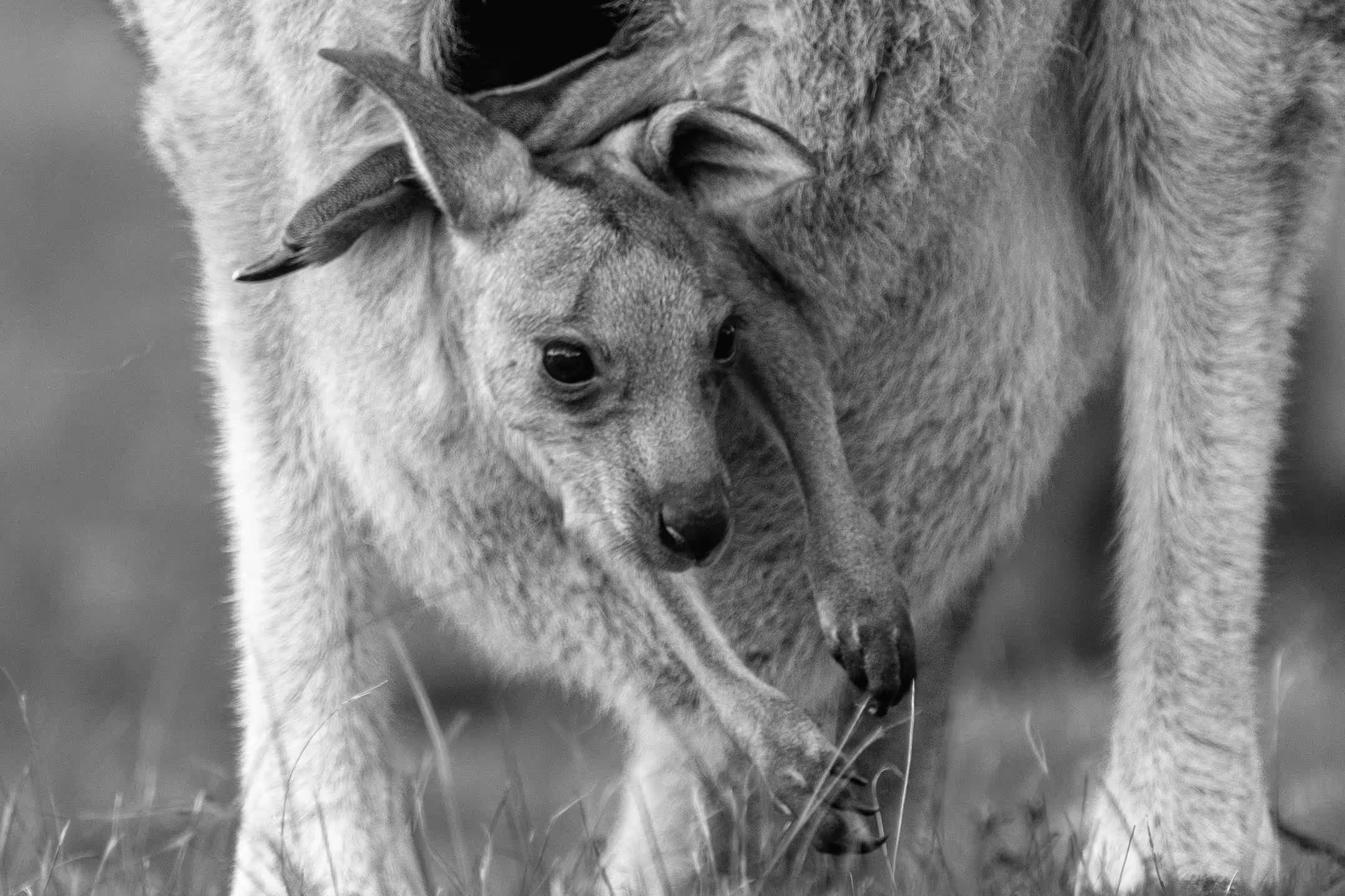
There may be more, but here are some examples:
The Australian Government has provided grants under the Traceability Grants Program and the Package Assisting Small Exporters Extension Program.
The Traceability Grants Program, which is funded through the Modernising Agricultural Trade, Protecting Australia’s Clean, Green Brand measure. The Program supports industry projects that will enhance our agricultural supply chain traceability systems, including developing and trialling technologies that digitise information flow.
On 7 May 2021, Western Game Processing was awarded a $297,000 grant to enhance traceability in the Kangaroo meat industry. The grant supported:
Under the Package Assisting Small Exporters Extension Program, the Kangaroo Industry Association of Australia (KIAA) was awarded, and expended, $366,500 (GST exclusive) from 2019-20 to 2022-23 for engagement in key export markets for Kangaroo products.
The project delivered activities that communicated the sustainability and welfare credentials of the Australian Kangaroo industry to the European Union (EU) and United States (US), including:
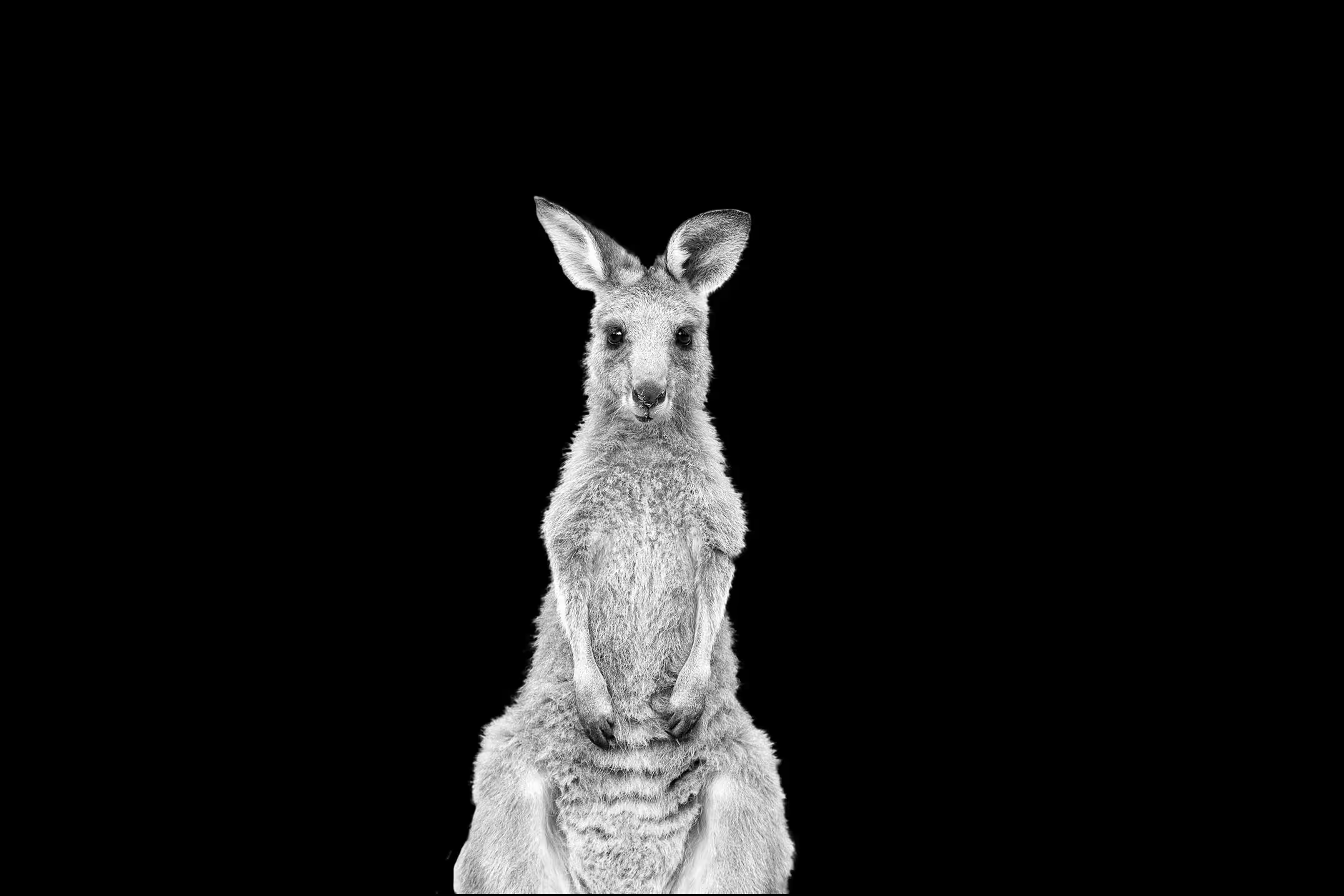
Since 2017 it looks as if Agricultural Research Grants total a further $745,000 including this study experimenting on joeys.
"During the commercial harvesting of Kangaroos, it is a requirement of a national code of practice that the dependent young of shot females are humanely euthanised using an acceptable method to prevent suffering. The aim of this study is to determine the effectiveness and suitability of captive bolt devices for the euthanasia of Kangaroo young during harvesting".
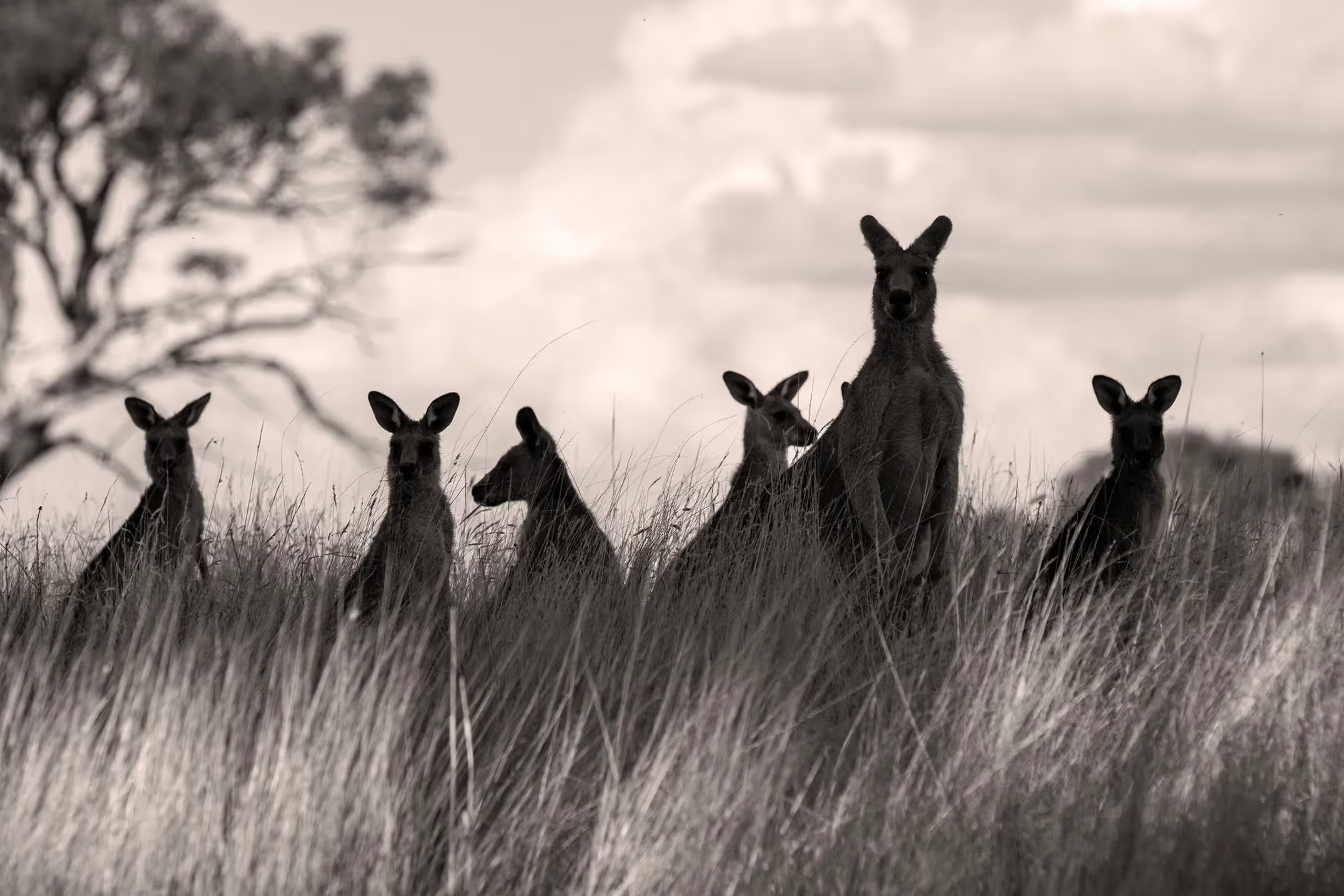
Export data can be difficult to fully describe. In the case of Kangaroos and in the last decade or so, the separate data relating to the export of Kangaroos skins has not been accessible (it vanished from public view in 2012-13), if it exists at all. Note the following from the ABS:
“International trade in goods statistics are subject to confidentiality. Where necessary, a “restriction” is placed, at the commodity level, to suppress the level of detail available. Depending on the nature of the restriction, this may be all detail relating to the product (no commodity details), or a suppression of only some variables (e.g. selected country details). Users of the International Trade in Goods and Services, Australia, and other international trade in goods statistics, should use the CCL to determine whether a particular statistic has been subject to confidentiality restrictions (and therefore may not represent the true aggregate value)”.
.avif)
The graph above compares the value of Kangaroo and Wallaby meat and skin / fur exports. From our own research of the ABS databases, the data for skins post 2012 appears not to be available to the public gaze and we think the data is now included in another category which includes hides of other species as well or remains confidentialised. It appears the shooters earn nothing from the skin / fur trade.
The latest investigations and questions in the Australian Government’s Senate by Senator Mehreen Faruqi, reveal the following about Australia’s Macropod skin trade between 2019 and September 2022.
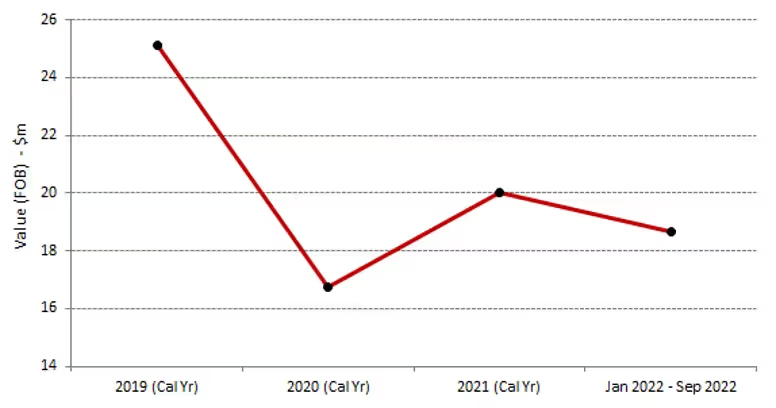
The graph shows the volume and value of Kangaroo meat exports - 2017 to 2023.
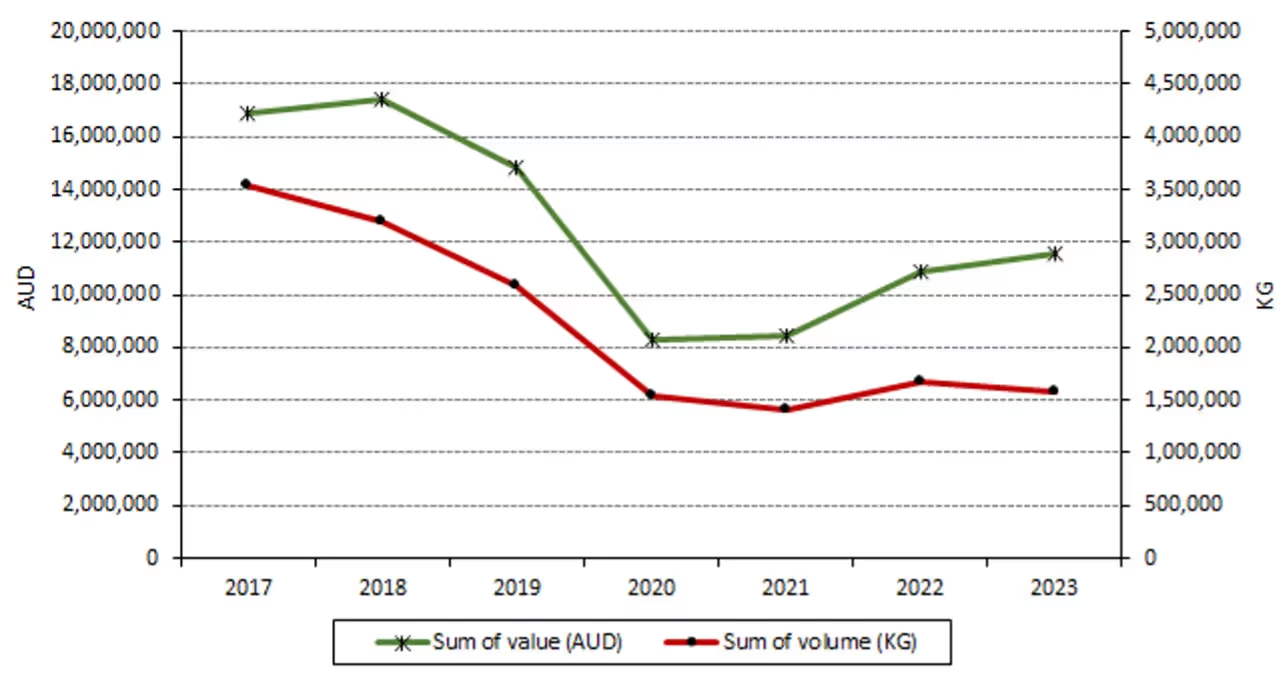
The pie charts show the share of Kangaroo exports by region and country in 2023. The EU is by far the biggest importer of Kangaroo meat. Exports to PNG are of particular concern and the end use of Kangaroo meat products in this market needs detailed investigation. In 2023, PNG paid AUD 4.8 per kilo for Kangaroo meat, while the European Union paid an average of AUD 9.05 per kilo. Why the difference? Is the difference in price due to the quality of meat being exported or is there a market discount for PNG?
Canada, South Korea, Singapore (where the import of Kangaroo meat for human consumption was the only bushmeat allowed) and Japan, also play their role in the terrible persecution of Kangaroo species in Australia.
These countries / regions import Kangaroo meat because they are told by the Australian Government that this bushmeat trade is safe, sustainable and humane. The US is interesting also and the figures reflect the general level of concern, going back decades, about the cruelty and sustainability of this trade in bushmeat. We should also not underestimate the love for Kangaroos in the US, and this fascination with this wonderful group of Australian animals continues to grow.
As a rough estimate, the international trade in Kangaroos in 2023 involved (in the range of) 115,000 to 140,000 Australian animals, all snatched for commercial gain from the Australian ecosystems in which they are a keystone species. The international bushmeat trade in Kangaroos accounts for less than 10 per cent of the annual commercial kill, including joeys. The Australian pet food trade is by far the biggest customer for Kangaroo meat.
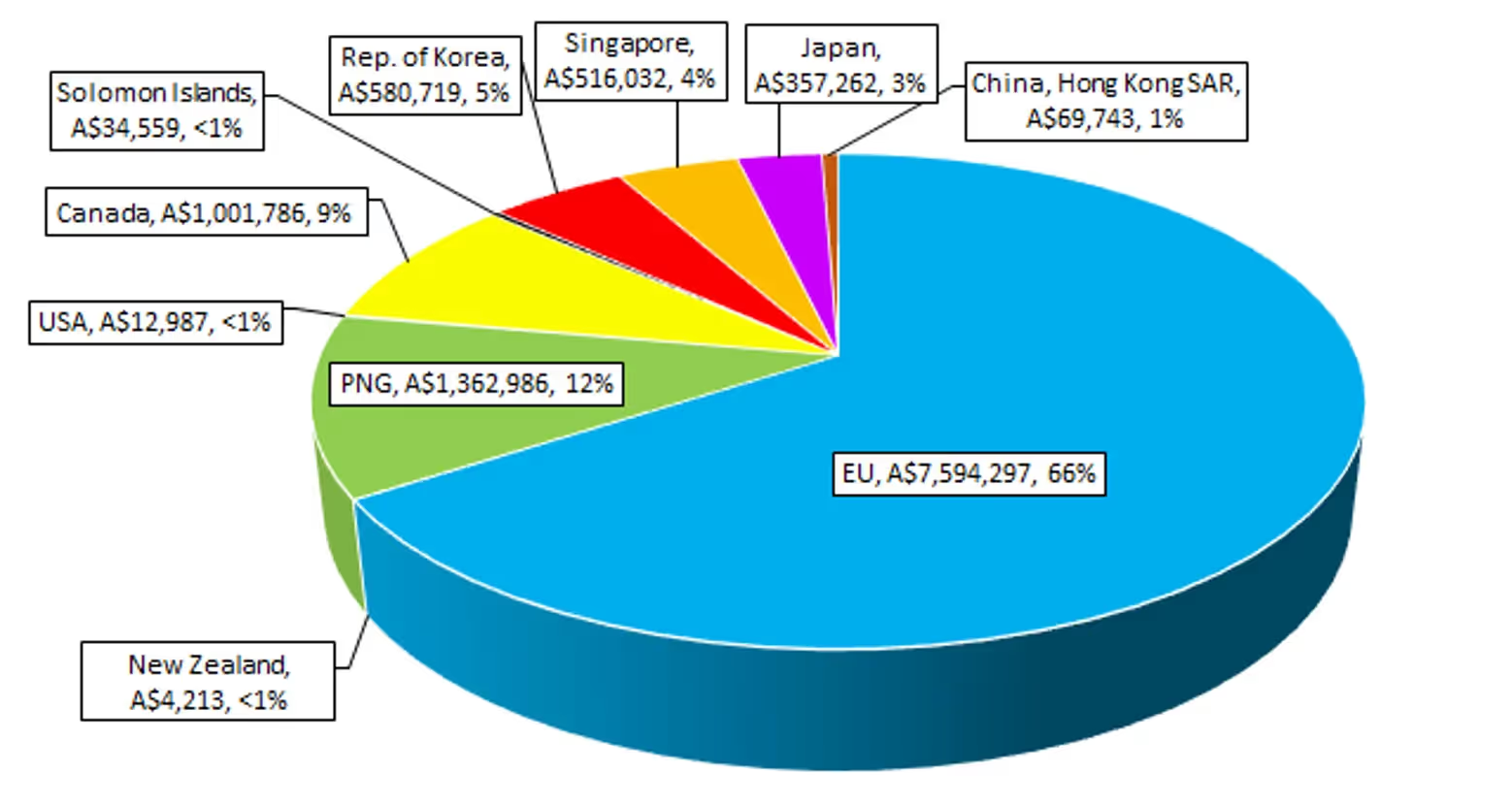

These notes apply to the last three diagrams above.
Notes: Nil exports found under HS codes:
Nil data found under:
Also note that these commodities have appeared on the ABS Confidential Commodities List. None of the listed confidentiality restrictions appears current, but given the mismatch between the ABS data and CMG data, assume this data is incomplete.
Source: Australian Bureau of Statistics (ABS) Catalogue 9920.0. See International Trade in Goods and Services, Australia: Confidential.